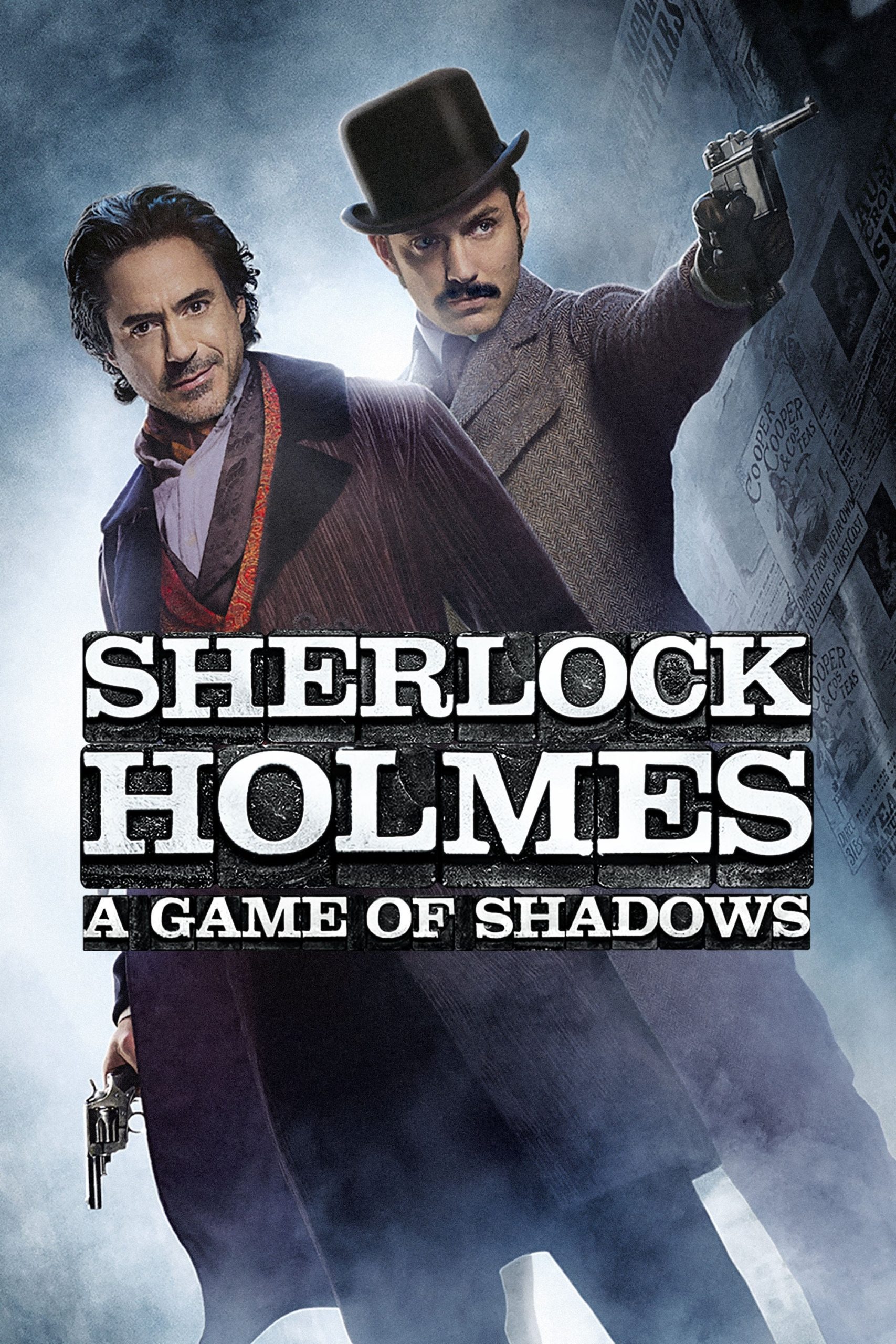
There is a new criminal mastermind at large (Professor Moriarty) and not only is he Holmes’ intellectual equal, but his capacity for evil and lack of conscience may give him an advantage over the detective.
09 Feb Sherlock Holmes: A Game of Shadows (2011)
Intermediaries
This is a new genre, I think. You go to it not so much for what it is, but what it points to, and what filters have been applied. Perhaps the genre was cemented with the Depp Pirate movies which had noise and story, but both were presented through a filter of ironic humour. That’s what we went for.
There was nothing new about that, except that they added this bit about the acting. Depp‘s pirate is delivered to us, not as a traditional actor would, nor even a comic. (Think about how Monty Python did pirates.) The innovation with Depp was that he delivered the character by going around the barn and filtering it through multiple culturally-rooted references. That business about Keith Richard was just a way of naming this prismatic presentation style.
The only other male actor capable of this is Downey. He has another franchise where he plays things the ordinary way, the Bruce-Willis-winking way. Here, he can out-Depp Depp. It is because Depp‘s sponsors have commercial intent outside of the film, in amusement parks and associated merchandise. Downey‘s sponsors keep it all in the film; they just want as many viewer dollars as possible.
So they can leverage three other properties of the film by this overt filter method. Of these three, one has appeared before, probably best identified with the Bond franchise: the extreme situations. These are not effects like those of ‘Lord of the Rings‘ or ‘Avatar,‘ which enhance the glory of the world we see. They are stage shows, more like a Penn and Teller Las Vegas act, where they become characters whose presentation is distorted for our amusement.
But they combine it with a specific notion of the camera, an explicit awareness that the camera is there and that it has been spliced onto your mind. We first saw this a very long time ago, and I suppose we have Sacha Vierny, then Chris Doyle and then the incubator of Hong Kong films before it became a staple in ‘The Matrix.‘ Here, we have close examination of the details of the chaos around our characters. We even have Downey running through strategic events before a fight. These are not happenings in a fight as much as they are our anticipated visions.
Lots of films have these three intermediary type folds these days. But this franchise has something the others do not: a well understood, almost archetypal story foundation. This isn’t just a character to play with, like Ledger‘s Joker, it is a whole story about storytelling, our first and still strongest. So Downey can honk around within a larger honk-structure that the filmmaker is managing. He had this in ‘Tropic Thunder‘ but that drew on thinner, more comedic foundations. It never referenced war, rather starting with intermediary: war movies
The Holmes foundation gives us access to the idea of understanding and stating the logic behind why things happen and what moves people. That’s gold in this business of building layers to look at the layers that look at things, especially when our on-screen surrogate is so deeply embedded in the story.
An example of how this pays off: throughout the film, our Sherlock works out all the moves of the fight to come, and is therefore victorious. Midway through the film, his predictions are cut short when Rapace‘s character surprises us and him by unexpected intercession, so that sets us up to read these predictions and predict how they will play out.
At the end, we have a battle of minds between Holmes and Moriarty where what we see is not the fight itself, but their shared anticipation (dare I say a game of shadows?) of what will happen and how each will outwit the other. The fistfight is there of course. So is a chess game. So is a similar game of war involving monarchs and their strutting ambassadors. So is a deeper game being played involving finance, power and influence. And – later – we learn so is a game to con Watson (and thereby us) into thinking Holmes dies.
(There are touchstones in the original Holmes stories for each of these.)
That all four of these filtering processes have the same, coherent style, even down to the film-page metaphor of the credits and the comically heavy score. But notice that final detail: there is no reason in the story for our seeing Holmes‘ strategy and not seeing the whole thing (with the oxygen mask). Nothing in the story, no strategy in the game, would be changed if Watson knew.
But that would defy the overarching fold, which no modern film can ignore: noir. Watson has been captured and manipulated (on his wedding night!) for our amusement. So if we are playing a game, then the film has to keep from him and us a key element.
Posted in 2011
Ted’s Evaluation — 3 of 3: Worth watching.


No Comments